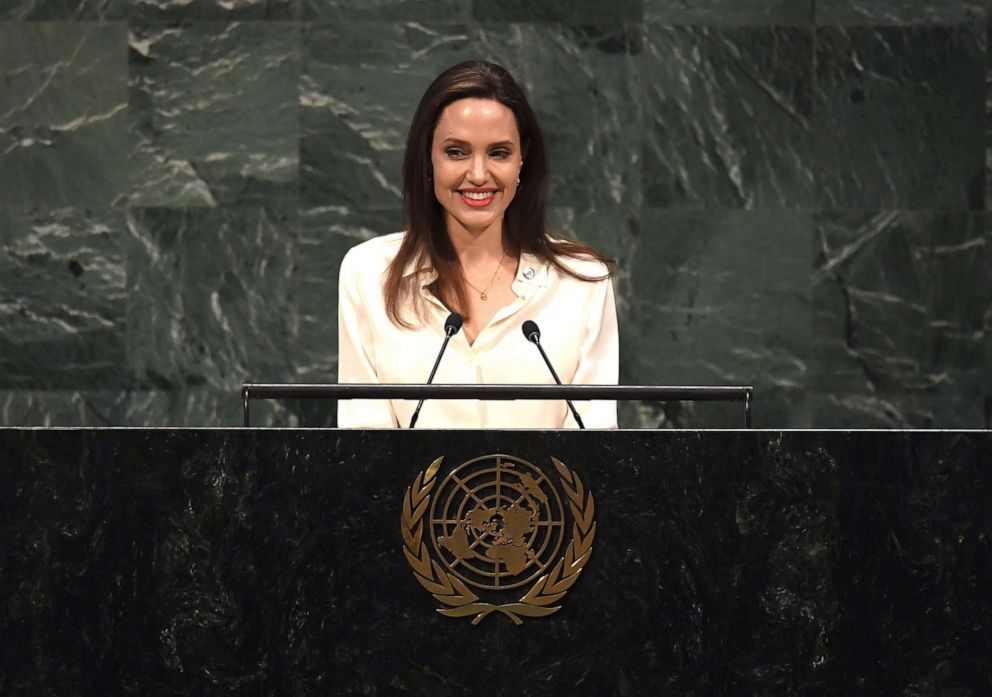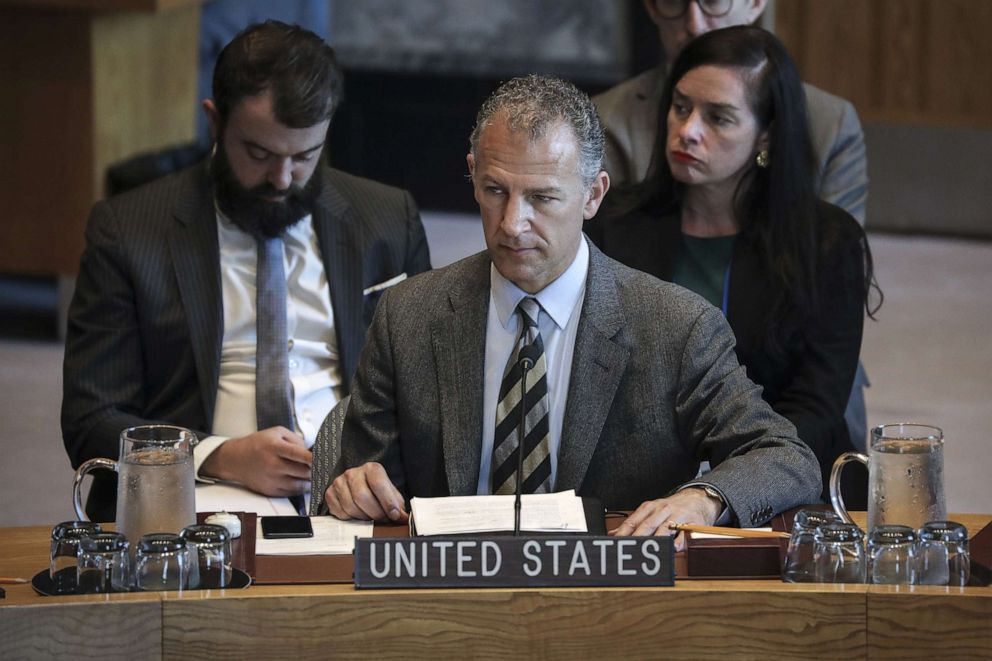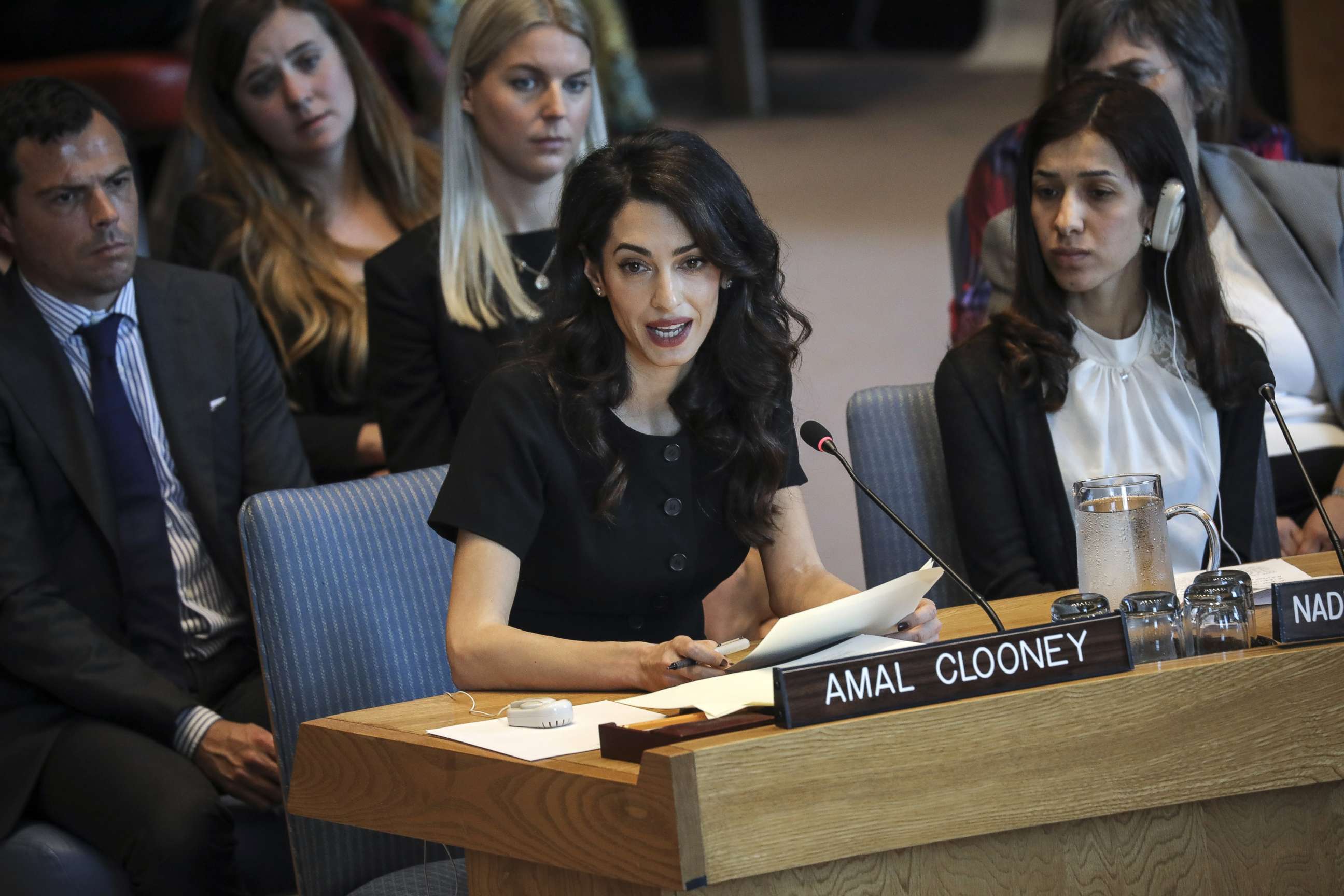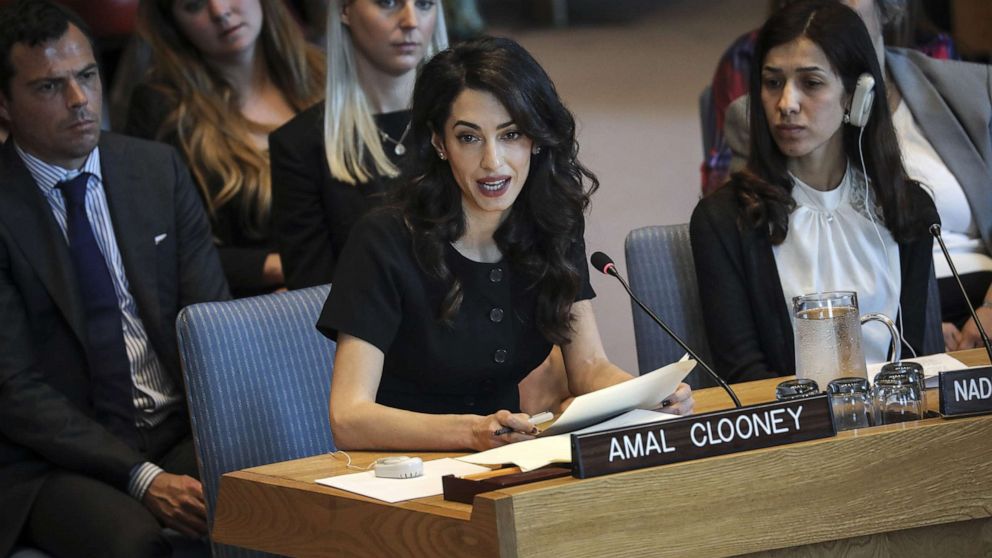Amal Clooney, Angelina Jolie speak out as US weighed vetoing UN resolution on rape as weapon of war
Angelina Jolie and Amal Clooney added their voices in the calls to support a new United Nations Security Council resolution that included a mechanism to investigate sexual violence as a weapon of war. The resolution also called for full services for victims, including sexual and reproductive health care.
But the U.S. mission to the U.N. opposed a draft version of the resolution because of that language on sexual and reproductive rights, according to a U.N. special envoy and a U.S. official. The Trump administration has implemented a hard line against such language, which it sees as code for abortion.
The final resolution was passed on Tuesday, but it was a weakened version. Opposition from China and Russia already forced the German mission, which proposed the resolution, to take out the investigative mechanism. Although the German draft copied language from previous U.N. Security Council resolutions on sexual and reproductive rights, the U.S. opposed that language and said it may veto the resolution over it.
The ultimate version that passed did not include that language, and the U.S. supported it. Russia and China abstained.

The U.S. was "threatening to use their veto over this agreed language on comprehensive health care services including sexual and reproductive health," U.N. Special Envoy of the Secretary-General on Sexual Violence in Conflict Pramila Patten told the Guardian on Monday, which first reported U.S. opposition. "It will be a huge contradiction that you are talking about a survivor-centered approach and you do not have language on sexual and reproductive health care services, which is for me the most critical."
The U.S. has no ambassador to the U.N., but its acting permanent representative Jonathan Cohen did not comment on possible U.S. opposition when he addressed the chamber on Tuesday. Before the vote, a U.S. official told ABC News that they had not made a final decision on the resolution, as the delegation was still in talks with Germany and other allies on the final draft.
U.S. opposition was centered over this line, where the resolution "urges United Nations entities and donors to provide non-discriminatory and comprehensive health services, including sexual and reproductive health, psychosocial, legal, and livelihood support and other multi-sectoral services for survivors of sexual violence, taking into account the specific needs of persons with disabilities."
The language borrows from previous U.N. Security Council resolutions about sexual violence in conflict.
"We are worried that the threat of veto was used by several members to bring into question 25 years of advances in this area. It is inexplicable that sexual and reproductive health are not acknowledged when discussing victims of sexual violence. ... Victims need this kind of care," Francois Delattre, the French ambassador to the U.N., said after the vote.
France was joined by the U.K., Belgium and South Africa in denouncing the U.S. position after the vote.

Patten told the Security Council that the language was critical to serving the needs of sexual violence survivors.
"The urgency to ensure comprehensive health services for all survivors, including sexual and reproductive health, as well as psychosocial and legal support, could not be more acute. This is at the heart of the survivor-centered approach that the secretary-general articulates in his recommendations," Patten said.
Angelina Jolie, an actress and special envoy for the U.N. High Commissioner for Refugees, advocated for the resolution in an editorial on Tuesday with German Foreign Minister Heiko Maas. They noted the importance of both a strengthened working group to improve monitoring and an "inclusive, survivor-centered approach" that deals with all of a victims' needs.
"As voices of bigotry rise, the wait for gender equality is growing. Women’s rights are again being called into question, and demands for sexual and reproductive health and rights are met in some quarters with open hostility," Jolie and Maas wrote.

The Security Council adopting Germany's resolution "would be a much-needed step toward ending impunity for sexual violence in conflict," they added. "It would also send an important message to those who attempt to roll back human rights: We don’t take progress for granted. And we will fight to keep it alive."
But the resolution is not enough for many human rights advocates. Amal Clooney, the prominent human rights lawyer and wife of actor George Clooney, spoke before the Security Council on Tuesday and said it must do more to address "your Nuremberg moment, your chance to stand on the right side of history."
"Although this draft resolution is a welcome step forward, especially insofar as it strengthens the sanctions regime for those who commit sexual violence, we must go further because if this august body cannot prevent sexual violence in war, then it must at least punish it," Clooney said.




